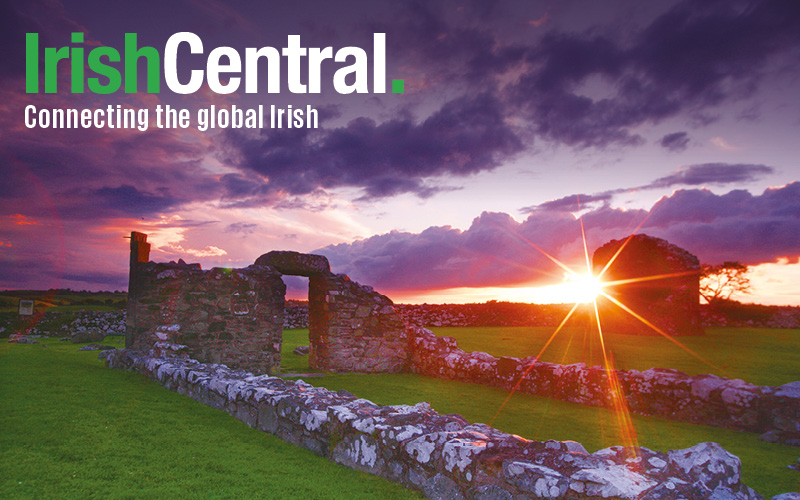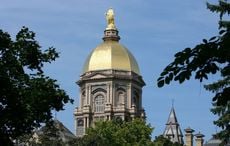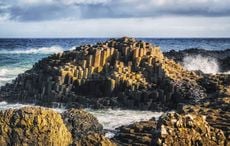One hundred years ago last week, Douglas Hyde resigned from the presidency of Conradh na Gaeilge—a non-governmental organization working to promote the Irish language—a role he had held for twenty-two years.
Douglas Hyde, the academic scholar, son of a Church of Ireland Rector, and later the first President of Ireland, was a leading figure in the Irish language revival of the late 19th and early 20th century.
In 1893, he founded Conradh na Gaeilge (then known by its English name, the Gaelic League) as a non-governmental organization to promote the Irish language in Ireland and worldwide and it quickly became the leading institution promoting the revival.
Pádraig Pearse, one of the leaders of the 1916 Easter Rising, was also a prominent member of Conradh na Gaeilge in the early 20th century. Pearse joined the organization aged 16 in 1896 and went on to become editor of their newspaper “An Claidheamh Soluis” ("Sword of Light") in 1903 when he was just 23 years old. Under his editorship until 1909, the paper became a prominent force in the Irish Literary Revival.
Despite the incredible work that both men did for the promotion of the language and Irish culture there were times when they did not see eye-to-eye.
After more than two decades at the helm of Conradh na Gaeilge, Hyde decided to resign. He laid out the reasons for his departure in a letter read aloud by Pádraig Ó Dálaigh to attendees of the Ard-Fheis (Conradh’s annual convention) in Dundalk on July 29, 1915.
Dear Pádraig,
Please inform the Ard-Fheis that I am greatly saddened by it, but if anyone is kind enough to put my name forward as president again, I must refuse that honour.
The work of years past has afflicted my health, and I think now that the responsibility has become too great for me.
I receive hundreds of thousands of letters from every corner of the world week in week out the whole year long, and as long as I am president of the League I am obliged to answer these letters and examine many issues. And I can say that I never received a letter from anybody from the foundation of the League to which I did not respond.
I had to, as president, go to meetings in every county in Ireland, just about. There are few towns in the country in with I have not spoken in these past twenty two years.
And when I look back at the amount of work which has been done in those twenty two years, I see that it is no less than a miracle, and I am more certain today than ever before that the hand of God was in the work.
I did my very best for our language all the time.
It is not without sorrow and heartbreak that I decided that I could not remain as president of the League anymore. I bid everyone at the Ard-Fheis a fond farewell and I need not say that my heart is and will be in the work of the Irish language as it was from the start and that I will do my very best on her behalf. I apologise to the Ard-Fheis for my absence today.
Your friend,
An Craoibhín
But it was not just his health that was playing on the president’s mind. For some years prior, a political tension was building within the Conradh between those who wanted the organization to have a clear political vision and those who wanted the Conradh to stay out of politics altogether.
Pádraig Pearse was one of Hyde’s best lieutenants in the Conradh in the years before 1912, but the more Pearse became interested in militant nationalism the greater the schism between them grew.
The 1915 Ard-Fheis met in Halla na Maor gCoill in Dundalk. A resolution was accepted at the Ard-Fheis that political independence would be one of the aims of the Conradh from then on.
“Pearse and Tom Clarke [Tomás Ó Cléirigh, Irish republican and person famed as being the most responsible for the Easter Rising] were central to pushing the League in a militant direction. Hyde did not believe in physical force unless there was no alternative and victory was assured. He had little sympathy for the notion of a blood sacrifice,” Dr Brian Murphy from DIT told Tuairisc.ie, Ireland’s online Irish news service.
Dr Murphy has written a book about the public life of Douglas Hyde, especially his time as President of Ireland, which will be published by Collins Press in 2016.
In 1913, in an essay published in "An Claidheamh Soluis" Pearse directly articulated the case for physical force.
“Whenever Dr Hyde, at a meeting which I have had a chance of speaking after him has produced his dove of peace, I have always been careful to produce my sword; and to tantalise him by saying that the Gaelic League has brought in Ireland ‘Not Peace but a Sword’,” wrote Pearse.
“By the time the Ard-Fheis took place in Dundalk, the Irish Republican Brotherhood had heavily infiltrated the Conradh, and they succeeded in passing a series of motions to dilute the non-political status of the League. Hyde resigned in protest,” explained Dr Murphy.
Hyde had no hand, act nor part in the Easter Rising. In the months which followed it, he took no public stance, but he did not support the militant action in which many of those who pushed him from the Conradh had taken part.
Dr Murphy told Tuairisc.ie that “his opinion about the Rising was clear in a letter he sent to John Quinn in America on 12 October 1916, in which he wrote ‘The League had been steered on the rocks by fools’ and that the outlook in Ireland was ‘as black as can be’.”
The mindset of the Irish people regarding the revolutionaries had changed by that stage and by the time the General Election of 1918 came around, the heroes of the Rising were held in great regard by the public.
Hyde supported the First Dáil when it was established in January 1919, but he criticized the War of Independence which started the same year. Once more, he did not believe in the violence perpetrated by both sides nor did he publicly support one side or the other during the debate about the Anglo-Irish Treaty which both ended the War of Independence and started the Civil War. He wrote to Quinn once more, however, and told him that “this Treaty is a measure of freedom.” He was of the opinion that little more could be achieved.
A successor to the presidency of the Conradh was not elected for a while after Hyde’s resignation in July 1915. The Ard-Fheis decided to leave the position vacant in the hope that Hyde would return to the role before long.
An editorial written in An Claidheamh Soluis a week after Douglas Hyde’s resignation claimed that the organization's founder needed a rest, but there was hope the he would return to his presidential responsibilities.
“His health has been a worry to him for a considerable time, and there is no doubt whatever that the work of the League has been too exacting on him. He requires a rest from excessive work and controversy. He may be with us again before very long. In the meantime let us take up again with high spirits and courage the work of teaching and organization and let An Craoibhín’s counsel to keep the League out of party warfare be ever before our mind,” wrote the editor in the Claidheamh Soluis published on August 7, 1915.
In the end, Eoin Mac Néill reluctantly accepted the role of president. Of course, it was Mac Néill who tried to stop the Rising at the start of Easter Week 1916.
Seán T. Ó Ceallaigh was made General-Secretary during the same Ard-Fheis. Ó Ceallaigh would later succeed Douglas Hyde as President of Ireland in 1945. Although the First and Second Presidents of Ireland fell out with one another during the quarrel over the political neutrality of the Conradh, they made up in the thirties.
“Unfortunately, we will never know what would have happened between Pearse and Hyde had Pearse survived the events of Easter 1916, or indeed had the Rising been successful. Unlike Ó Ceallaigh, Hyde never got the chance to extend the hand of friendship to Pearse,” said Dr Brian Murphy.
Maitiú Ó Coimín is a journalist with Tuairisc.ie, where this article was originally published in Irish.




Comments